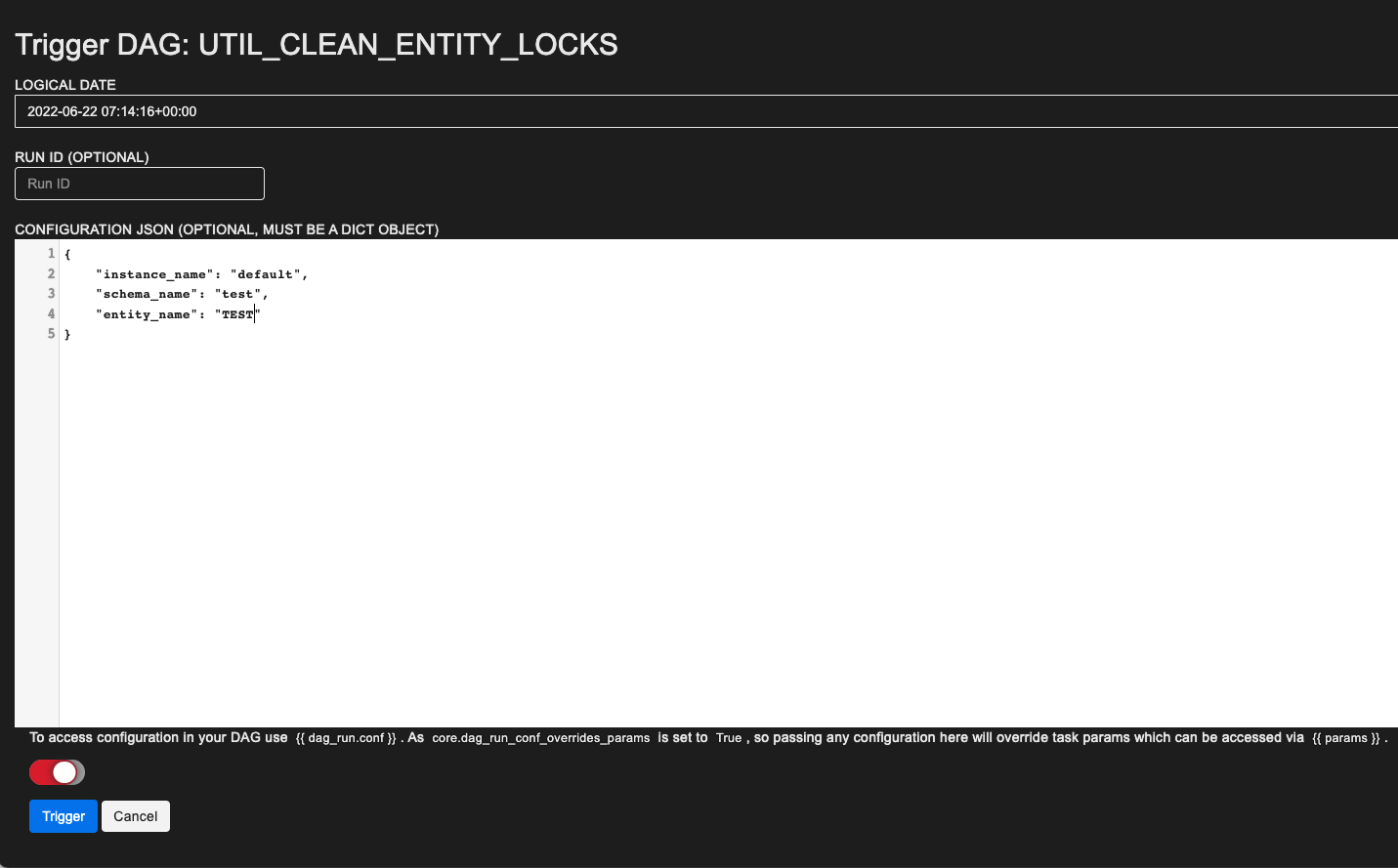System DAGs
System DAGs (workflows) are used for maintenance and updating workflows.
See also:
List of System DAGs
System DAG | Description |
|---|---|
CLEANUP_WORKFLOWS | Deletes unnecessary workflows from Workflow Orchestration. Scheduled, can also be triggered manually. |
REMOVE_OLD_LOGS | Deletes old logs from Workflow orchestration. Scheduled, can also be triggered manually. |
UPDATE_WORKFLOWS | Updates workflows when changes are deployed. Triggered automatically by Deployment Management. |
UTIL_CLEAN_ENTITY_LOCKS | Self-service workflow to remove entity locks, that have been left hanging due to some incident. All parameters (instance name, schema name, entity name) are required. Instance name is default in most cases where there is only one target database per Runtime environment. In multi-DBMS setups it is the name of the target database instance. Instance names appear also in Deployment Job names in Deployment Management: Deploy_{RuntimeName}__instance{TargetInstanceName} |
Notes
Keep system DAGs (other than UTIL_CLEAN_ENTITY_LOCKS) enabled in all Runtime environments to ensure that Workflow Orchestration is running optimally.
Examples
Using UTIL_CLEAN_ENTITY_LOCKS
An incident may leave unnecessary entity locks hanging in a Runtime environment. This prevents deployments and workflows from processing locked entities until the locks are automatically timed out. UTIL_CLEAN_ENTITY_LOCKS can be used to manually release unnecessary entity locks.
Warning
Be sure to only release unnecessary locks. Releasing active locks may cause deployment/workflow collisions.
Trigger UTIL_CLEAN_ENTITY_LOCKS from Workflow Orchestration with Trigger DAG w/ config and set parameters:
instance name
schema name
entity name
For example:

See DAG logs for execution details, for example:
[2022-06-22, 07:15:19 UTC] {dag_UTIL_CLEANUP_ENTITY_LOCKS.py:31} INFO - Parameters given: {'instance_name': 'default', 'schema_name': 'test', 'entity_name': 'TEST'}
[2022-06-22, 07:15:19 UTC] {dag_UTIL_CLEANUP_ENTITY_LOCKS.py:36} INFO - Removing entity locks from: default.test.TEST